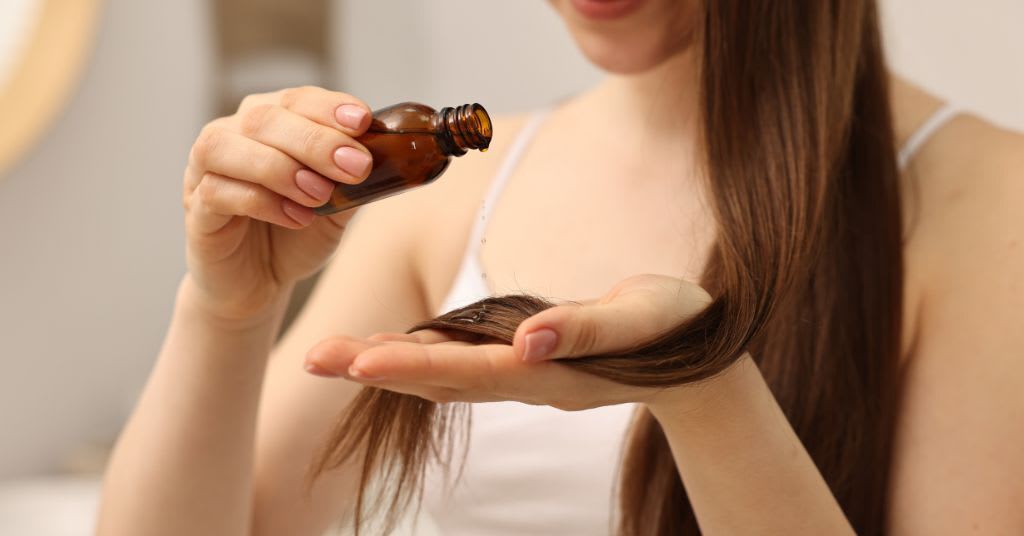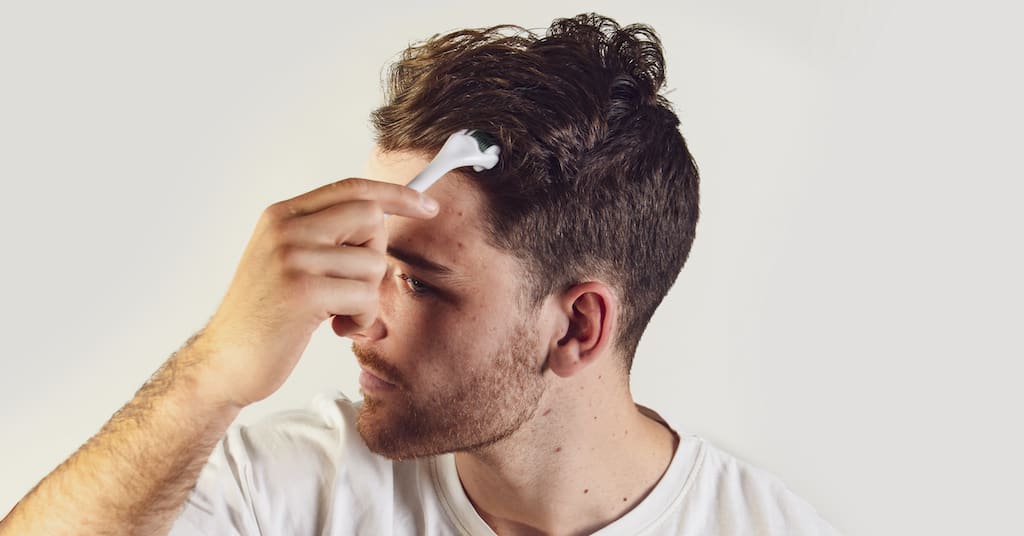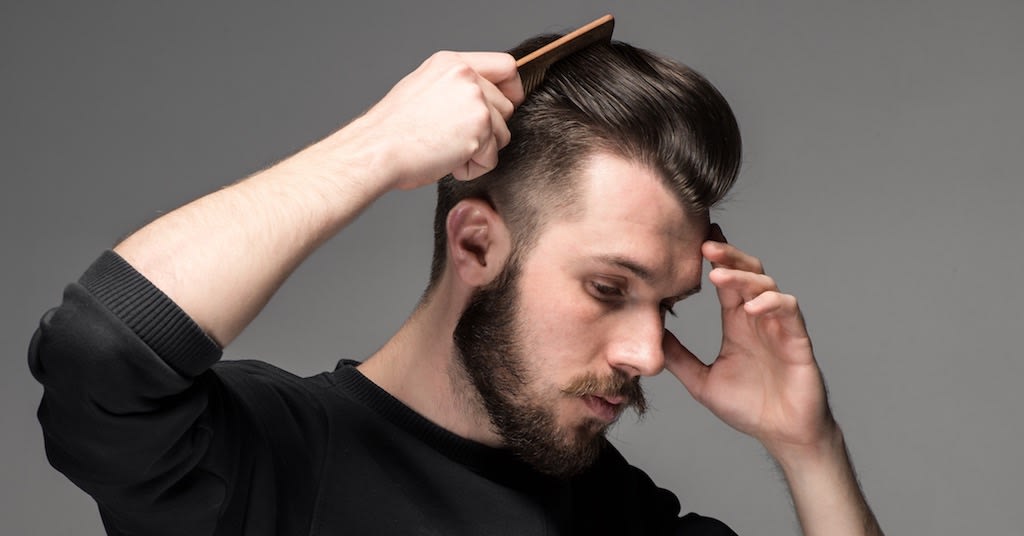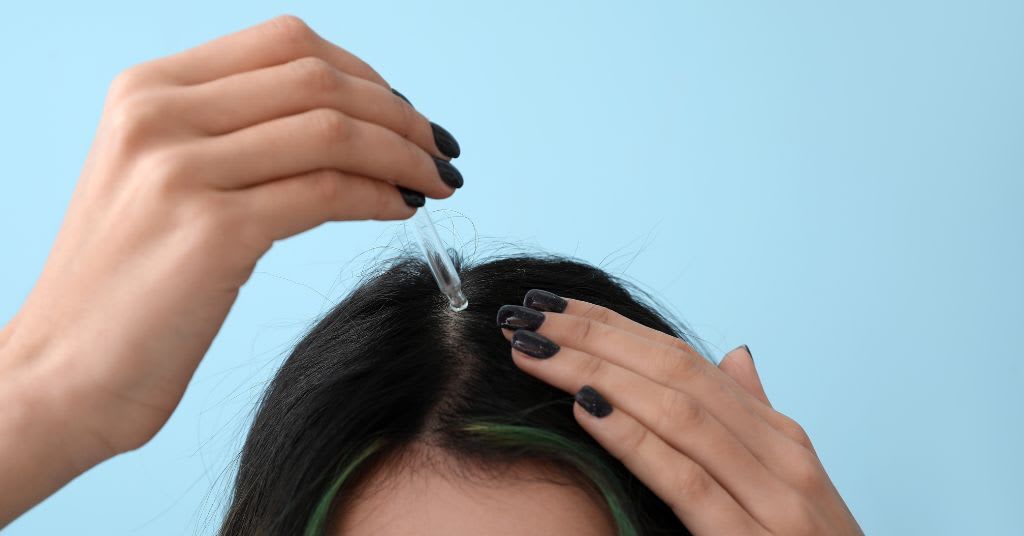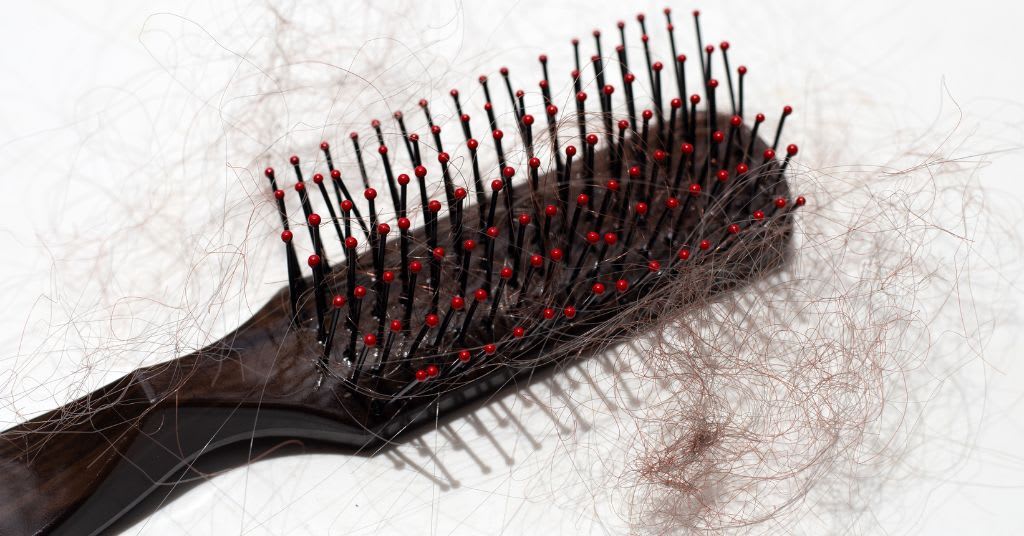Hair growth can be a slow and frustrating experience, one that sends many people searching high and low for a solution. With so many options on the market, from natural hair growth products to drugstore treatments like minoxidil, it’s tough to know what actually works.
In this article, we’ll break down what the science says about minoxidil and how it compares to natural hair growth products like biotin, rosemary oil, and saw palmetto. Whether you're looking for a minoxidil alternative or just trying to make sense of your options, this guide lays it all out.
What is Minoxidil?
Minoxidil is one of the most widely used treatments for hair regrowth, and for a good reason. It works by improving blood flow to the hair follicles. Specifically, it opens potassium channels in the blood vessels around the follicles, which helps deliver more oxygen and nutrients to the area. This process supports stronger, thicker hair growth and extends the hair’s growth (anagen) phase, helping to reduce thinning over time. 1
Minoxidil isn’t just for the scalp either; it’s also commonly used to help stimulate beard growth. In both cases, it helps dormant or shrinking follicles become active again, making hair look fuller and denser. 1
However, it’s not a one-and-done solution. Minoxidil has to be used continuously to maintain results. Once you stop applying it, any new growth gained will typically be lost within a few months. 1 That means it’s more of a long-term commitment than a quick fix, but for many people, the trade-off is worth it.
Minoxidil vs. Biotin

Biotin (vitamin B7) is one of the most popular natural hair growth products on the market. But does it live up to the hype?
Here’s what the evidence shows: biotin is essential for hair, skin, and nail health, but most people get enough of it through a normal diet. Biotin deficiency is rare, but it can occur in certain groups. 2 People most at risk include:
- Those with genetic conditions
- Individuals who consume raw egg whites regularly (which contain avidin, a protein that blocks biotin absorption)
- Pregnant women or individuals on certain medications (like anticonvulsants or antibiotics) that deplete biotin levels1
When deficiency is present, biotin supplementation has been shown to significantly improve hair growth and reduce hair shedding. But for people without a diagnosed deficiency, the benefits are questionable. A review of reported cases found that all individuals who improved with biotin supplementation had an underlying condition causing poor hair or nail growth.1
Bottom line? If you’re deficient, biotin supplementation can help restore healthy hair. But if you’re not, there’s little evidence it’ll make a noticeable difference.
Minoxidil vs. Rosemary Oil
Rosemary oil has earned its place as one of the most talked-about natural hair growth products in recent years. Its appeal comes from its antioxidant, anti-inflammatory, and even mild anti-androgen properties. 3
Rosemary oil has shown real potential in clinical studies. In fact, one study found that rosemary oil was just as effective as 2% minoxidil in promoting hair growth over six months?. 3
What gives rosemary oil its edge? Compounds like carnosic acid, ursolic acid, and rosmarinic acid reduce inflammation and may protect hair follicles from damage. It’s also been shown to help with perifollicular inflammation, which is common in pattern hair loss. 3
The verdict? Rosemary oil might not work as fast or as powerfully as 5% minoxidil, but for people looking for a natural hair growth product (or who can't tolerate minoxidil), it’s a promising minoxidil alternative worth considering.
Minoxidil vs. Saw Palmetto

Saw palmetto is a botanical extract that works differently from minoxidil. It blocks the enzyme 5-alpha-reductase, which converts testosterone into DHT, the hormone linked to hair follicle shrinkage in androgenetic alopecia. That makes it more similar to finasteride than to minoxidil in terms of its mechanism. 4
Clinical studies showed that saw palmetto supplements (in doses ranging from 100 to 320 mg per day) led to improvements in hair count, thickness, and overall quality in both men and women with hair loss. Some studies reported that over 80% of users saw thicker or fuller hair and about 60% noticed better overall hair quality. 4
While saw palmetto may not match the effectiveness of finasteride (a prescription DHT blocker), it offers people an option of a natural hair growth product that addresses hormonal hair loss.
How to Choose the Right Natural Hair Growth Product for You
With so many options on the market, it can be overwhelming to pick the right natural hair growth product, especially if you’re looking for a reliable minoxidil alternative that actually works. Here’s a simple guide to help you narrow it down.
Know Your Hair Loss Type
Are you dealing with genetic hair loss (like androgenetic alopecia), shedding from stress, or post-pregnancy hair changes? Understanding the root cause can help you choose the most effective natural hair growth product.
- For hormonal hair loss, saw palmetto may be your best bet. 4
- For circulation or inflammation issues, rosemary oil is a good minoxidil alternative. 3
- If your hair thinning is related to a vitamin deficiency, biotin or multivitamin formulas could help. 2
Consistency is Everything
Even the best natural hair growth products need time. Just like minoxidil, most natural minoxidil alternatives take regular use to show real results.
Make sure to follow product instructions carefully and be patient. Skipping days or using too many products at once won't speed things up; in fact, it could irritate your scalp and set you back.
Talk to a Specialist
If your hair loss is persistent, consult a dermatologist or trichologist. They can help you figure out whether a minoxidil alternative is enough or if you’d benefit from combining natural hair growth products with prescription treatments.
Conclusion
If you're looking for clinically proven results and are okay with long-term use, minoxidil still leads the pack. It works well, especially when started early in the hair loss process. But it’s not the only path forward.
Natural hair growth products offer a compelling alternative. From rosemary oil to saw palmetto, there are several minoxidil alternatives backed by real research, not just marketing hype. And for those dealing with nutrient deficiencies, targeted supplements like biotin can make a real difference.
Whether you choose minoxidil or a minoxidil alternative, consistency is key. Hair loss treatments take time, often several months, to deliver visible results. Pick the routine you can stick to and be patient with the process.
The content in this article is intended for informational purposes only. This website does not provide medical advice. In all circumstances, you should always seek the advice of your physician and/or other qualified health professionals(s) for drug, medical conditions, or treatment advice. The content provided on this website is not a substitute for professional medical advice, diagnosis, or treatment.
